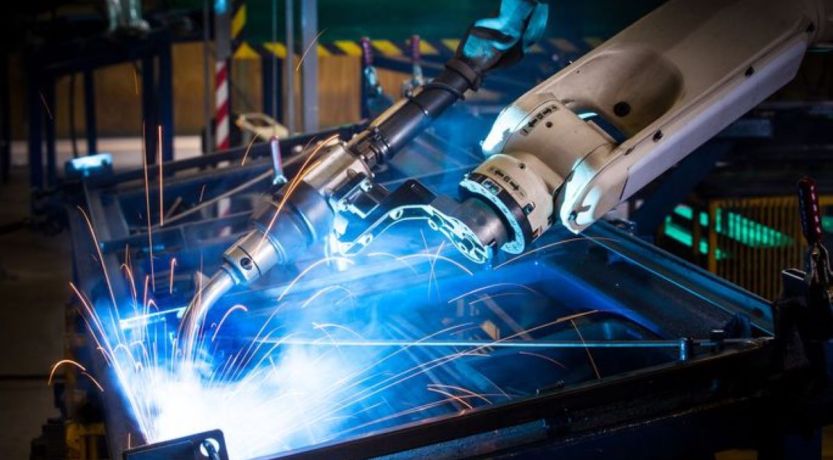Could Robots Replace Human Beings?
Advancements in artificial intelligence lead some to fear robots will take more jobs from people. Could robots replace human beings?

It is quite amazing what machines can do today. We now have self-driving automobiles and computers that can recognize images and speech. With advancements in robotics and the increasing costs of human labor, some employers are considering the question, Should my next hire be a robot? By 2025 it is estimated that robots will be 16 percent cheaper than hiring a human being.
The trend of increasing the responsibilities given to automation has been called Industry 4.0. Consider the following examples of where the trend of automation is heading:
- Two years ago, when several states decided to raise their minimum wage, the response from McDonald’s former CEO Ed Rensi was, “It’s cheaper to buy a $35,000 robotic arm than it is to hire an inefficient employee who makes $15 per hour bagging French fries.”
- KFC in China is now using a robot to take food orders.
- SAM (short for Semi-Automated Mason) lays bricks at nearly three times the speed of a human being.
- MIT Technology Review cites some estimates that 22 percent of a lawyer’s job and 35 percent of a law clerk’s job can be automated.
The examples could go on and on.
The economic impact of automation has some very worried. Switzerland was the first country to have a serious debate about introducing an unconditional basic income to protect its citizens from the threat of having their jobs replaced by robots. Finland has also had similar debates.
Let’s look at a bigger question: Can robots make human beings obsolete?
The AI paradox
Before we panic, it’s important to understand the intelligence capabilities of today’s machines. Currently, machines possess supervised learning capabilities—which basically means human beings tell the machines what to learn.
Take, for instance, speech recognition software that allows large amounts of data (such as audio and speech files) to be fed into machines by human beings. It doesn’t work without human beings. Apple’s Siri, which most people think of as an infinitely intelligent application, required Karen Jacobsen (the voice behind the app) to record words in a studio for nearly 50 hours.
Machines and robots cannot yet learn and infer things independent from human beings. Just watch babies learn and discover things about their world on their own, and you’ll witness firsthand why even the most advanced robotics are nowhere near the capability of a human being. When we ask Siri what time sunset is, it can tell you, but it doesn’t know what sunset is the way a human does. A machine’s capabilities are limited to the tasks it has been trained in.
Hector Levesque of the Department of Computer Science at the University of Toronto illustrates the wide gap to true intelligence by posing the following question: “Could a crocodile run a steeplechase?” For you and me, the answer comes quite easily: a crocodile has short legs; the hedges in a steeplechase would be too tall for a crocodile to jump over—so, no, a crocodile cannot run a steeplechase. But a computer would have to search for large amounts of data for the answer and would probably say no based simply on the fact that no previous instances have been recorded.
The missing dimension in AI
So, why isn’t AI capable of functioning like a human being? What is missing? The question is best answered by looking at what makes a human being truly unique. A human’s capabilities are so much greater than an animal’s—but that fact cannot be explained just by looking at the human body. Many animals are physically stronger and more impressive than human beings. But it is our mind—or brainpower—that truly sets us apart.
It is because of the spirit in man that scientists will never be able to fuse humanlike intelligence into a machine or computer program.
The Bible shows that God gives each human being a “spirit of man” (Zechariah 12:1). It is this spirit (also called the “spirit in man”) that enables a man or woman to be self-aware, creative, develop a personality, reason, plan, acquire knowledge and learn to apply it (Job 32:8; 1 Corinthians 2:11). Without this spirit, man would function like an animal.
There is an interesting account in the book of Daniel where God humbled the Babylonian King Nebuchadnezzar by making him mentally an animal for seven years. Perhaps God accomplished this by temporarily removing the spirit in man from Nebuchadnezzar, which left him with a brain that functioned like an animal’s (Daniel 4:33). When the spirit was returned seven years later, his humanness returned (Daniel 4:34).
It is because of this spirit in man that scientists will never be able to fuse humanlike intelligence into a machine or computer program.
Celebrating the missing dimension
There is actually a biblical festival that celebrates this truth. It is commonly known as the Feast of Pentecost. This year it will be observed on May 20, 2018. Pentecost marks the day when God poured out His Spirit and founded the Church (Acts 2:1-4).
Date Posted: May 7, 2018



